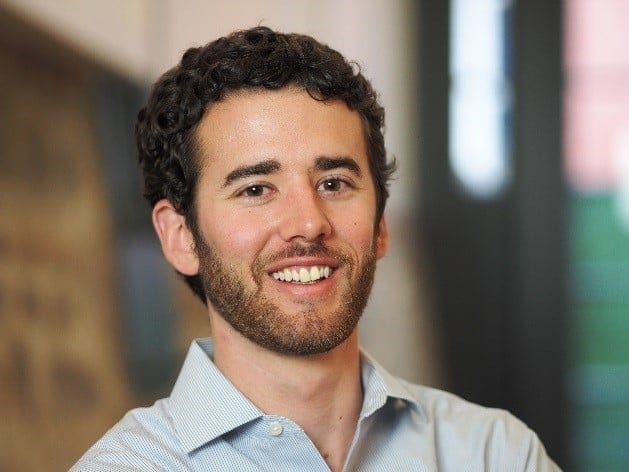For a country like Nigeria (where over 80 million live below $1 a day), most entrepreneurs won’t want to hear “forget about the profit and focus on addressing needs”. The truth is, most of them become “entrepreneurs” in the first place because of the profit and nothing more. And that’s why the majority don’t stand the test of time.
An entrepreneur who wants to stay relevant for long MUST seek to solve problems!
Sorry to burst your bubble; Entrepreneurship is not a poverty alleviation scheme!
Entrepreneur.com described an entrepreneur as “an initiator, a challenger and a driver. Someone that creates something new, either an initiative, a business or a company”.
Note that the above definition didn’t call an entrepreneur someone looking for a way out of poverty.
Of course, money is necessary too. But it shouldn’t be the main driving force – that should be problem-solving.
There is an urgent need to have entrepreneurship redefined and mindset re-engineering for entrepreneurs, especially in this part of the world.
Renowned English business tycoon and the founder of Virgin Group, Richard Branson, said he always encourage entrepreneurs to “focus on how their business ideas will help others. If your business genuinely improves people’s lives, success will follow.”
There you have it – solve a problem first, and success will follow.
And as long as people have problems, they will continue to be on the lookout (consciously and subconsciously) for solutions. Imagine their happiness and how they’d’ embrace whoever comes with the solution.
Contents
Convenience is the new cool
To most people who grew up a few decades ago, technology is teaching this generation laziness and instant gratification. Are you hungry? Place an order from your phone. Do you need to see a movie? Netflix and chill. Need to go out? Call Uber (or Bolt).
To them, it might be laziness; but to this generation, it is making lives more comfortable and better. It is solving age-long human problems. And the good news for new entrepreneurs is, there are still more of such problems to be solved, leveraging on technology.
Tips to Help Entrepreneurs identify Problems and create Solutions
Sometimes, identifying the seemingly apparent problems in the society can be challenging. What’s even more challenging is creating a solution to the problem.
Here are few insights to help with these
a. Focus on must-have, not nice-to-have
People are exposed to way too many options and information these days that it takes standing out to be noticed. If it’s not a solution or a must-have, people will forget about your business even before they see it.
They see nice-to-have products every day, so nothing you do will move them. Plus if it’s nice-to-have, then it’s most likely not solving a problem that has not been solved before.
But give them a must-have, something they will soon come to realize they “can’t do without.”
b. Solve real, everyday Problems
Please take a moment and imagine our world without Amazon, Google, Netflix, Uber and the likes. Unlivable right?
Well, some 20-30 years ago, we lived the same world without them. But finding answers to questions was a problem for which Google provided a solution; online shopping was impossible, and Amazon came through for the world; there was no on-demand streaming service, so it wasn’t easy to see all your favourite shows and movies in one place until Netflix came through.
What problems is the world your society facing, and what are you doing to solve them as an entrepreneur?
c. Make sure you’re Passionate about this problem you want to solve
Then there is passion – the only thing that would keep you going when it becomes challenging. Successful entrepreneurs build solutions in areas where they have passion.
The co-founder of Dropbox, Drew Houston said: “The happiest and most successful people I know don’t just love what they do, they’re obsessed with solving an important problem, something that matters to them”. It couldn’t have been better said.
You don’t start a business and expect to take off the next day. Most of the successful businesses you know today went through weeks, months and even years of struggle before they finally became successful. The Shoe Dog, for instance, tells the story of Phil Knight’s struggle in building Nike to the household name it is today.
But, amid the challenges and struggles, what helps entrepreneurs to keep going is their passion for what they do.
Some Entrepreneurs who became successful after solving problems
1. Irene Agbontaen (TTYA)

5’11 tall, Irene is the brand behind the London-based Taller Than Your Average. The fashion brand specializes in styling women that are 5’9 and above tall, a demographic that had been underserved.
Irene herself had found it difficult to find clothes that fit her due to her height. For her and other tall women like her, they either don’t get what they want or have to add extensions to the clothes they buy. It was a struggle.
The frustration from her own experience pushed Irene to establish to TTYA in 2013 for tall, fashionable women. Tall women lives matter!
She has made it to the cover of Vogue Magazine (the dream of many in the fashion industry). She is an inspiration to many women around the globe.
For Irene, her personal experience pointed her to the problem, and she went to create a product that seeks to solve it. And there is no questioning her passion.
2. Barclay Paul (Impact Africa Industries)

Every May 28 is a day set aside to create menstrual hygiene awareness and to draw attention to challenges women and young girls face during menstruation.
One of such challenges is the fact that women in some underdeveloped countries do not have access to sanitary pads, so they end up using unsafe and unhygienic alternatives.
Paul in Kitale, Kenya, saw this trend and the danger it poses so he decided to start manufacturing reusable and affordable sanitary pads as a way of addressing the challenge.
Today, his company supplies these sanitary pads to other countries like South Sudan and Uganda with its current annual revenue standing at $300k.
But it all began with providing access to sanitary pads to women who couldn’t afford it.
3. Victoria Alonsoperez (IEETech)

Victoria Alonsoperez is an Uruguayan entrepreneur who founded the social enterprise, IEETech. She developed the Chipsafer, which is a platform for monitoring cattle health risks autonomously and remotely.
The device uses sensors to collect data about the health of livestock which can be converted into actionable information to help farmers prevent an outbreak and provide better care to their livestock.
This groundbreaking technology helps in preventing the death of cattle and generate more revenue.
Also, Chipsafer helps farmers to remotely monitor their livestock to know where they are and what they are doing when there is no one with them.
Farmers will not forget Victoria in a hurry.
4. Andrew Foote (Sanivation)

This is another social enterprise project that is making a huge impact. Sanivation is committed to improving the entire health, dignity and environment of urbanizing communities located in East Africa using safe, clean and efficient sanitation services.
Sanitation remains a significant problem in most parts of the world, including Africa. With more people migrating from rural to urban areas, mismanagement, poor regional planning, conflict etc. cities have become stretched to their limits forcing people to live in unhygienic conditions.
Sanivation, therefore, addresses this problem by installing container-based toilets in homes for a small monthly service fee. The wastes from such toilets are then processed into environment-friendly fuel which people can still use instead of coal.
The model has been adopted in refugee camps, and Andrew hopes to serve 1 million people by the end of 2020.
Shit business, as they say, is serious business (provided it’s addressing a need).
5. Aisha R. Pandor (SweepSouth)

Aisha is a successful South African and co-founder of SweepSouth. SweepSouth is a venture-backed renowned online tech startup for booking and managing home cleaning services.
Most people don’t have the time to clean their homes or offices daily. And for most people, they would rather someone come in to do the job on-demand rather than have a full in-house cleaner. SweepsSouth was created for people like this.
Launched in 2014, SweepSouth links buyers and sellers of domestic cleaning services. As a result, the product helped those who needed cleaners find one at an affordable rate and create jobs for unemployed and underemployed youths.
” SweepSouth won the SiMODiSA Startup SA pitching prize and later became the first South African startup to be accepted into the prestigious 500 Startups accelerator based in Silicon Valley in San Francisco”, says the World Economic Forum.
They all have something in common – they identified problems, created products that sought to solve them, and then profits followed. Now, that’s the right order.
Conclusion
Those are just 5 of the uncountable entrepreneurs out there hitting success by simply finding a solution to a problem.
Problems will never finish. Most times, the solution to one problem often creates another. So, there will be problems yearning for a solution around us.
The Covid19 pandemic is one that we all can relate to. While the world was hit by one of the biggest pandemic ever forcing us all to stay at home, smart entrepreneurs saw needs that needed to be met. Some had to start creating face masks, hand sanitizers and the other things that could help prevent the spread of the virus.
The pandemic meant some of us had to work from home—a difficult but necessary decision for most companies.
Entrepreneurs who had remote work tools created massive awareness for their products to make working from home more comfortable.
Shops were closed. Offices shut down. Banks and other financial institutions went on an indefinite break. Movement was prohibited. Social gathering was a taboo. The world became a complete shadow of itself. Yet, in the midst of it, entrepreneurs who sought to solve problems were unstoppable.
For instance, Eric Yuan, the founder of the video-conferencing platform, Zoom saw his worth grew by over $2.5 billion during the pandemic. Steve Balmer, Microsoft CEO became $15.7 billion richer, and Jeff Bezos added $48 billion to his net worth, all during the pandemic.
So, the pandemic is no excuse. It’s an opportunity as it is changing the world from how we used to know it and creating a new norm.
And with technology at our disposal in this dispensation, we are unstoppable.
In the end, look well and hard around and seek to help make lives easier leveraging on readily available technological resources, and watch success come chasing you.
So, don’t just start another business. Instead, solve a real problem in the society.

























